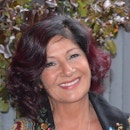- Speaker
-
 Elena Aprile, Ph.D.Professor, Physics, Columbia University
Elena Aprile, Ph.D.Professor, Physics, Columbia University
Presidential Lectures are a series of free public colloquia spotlighting groundbreaking research across four themes: neuroscience and autism science, physics, biology, and mathematics and computer science. These curated, high-level scientific talks feature leading scientists and mathematicians and are designed to foster discussion and drive discovery within the New York City research community. We invite those interested in these topics to join us for this weekly lecture series.
What is the dark matter that makes up 85 percent of the universe’s mass? Scientists have been asking this question for decades and have employed a variety of experimental approaches, both on Earth and in space, to answer it. Yet, the nature of dark matter remains a mystery.
In this lecture, Elena Aprile will discuss the latest efforts to illuminate the nature of dark matter. An answer to this fundamental question will likely come from ongoing and future searches with accelerators, indirect and direct detection. Detection of a dark matter signal in an ultra-low background terrestrial detector will provide the most direct evidence of dark matter’s existence and will represent a ground-breaking discovery in physics and cosmology. Aprile will focus on the XENON project and its prospects to continue to be at the forefront of dark matter direct detection in the coming decade. Among the variety of dark matter detectors, liquid xenon time projection chambers have shown to be the most sensitive, thanks to a combination of large target mass, ultra-low background and excellent signal-to-noise discrimination. Experiments based on this technology have led the field for the past decade.
